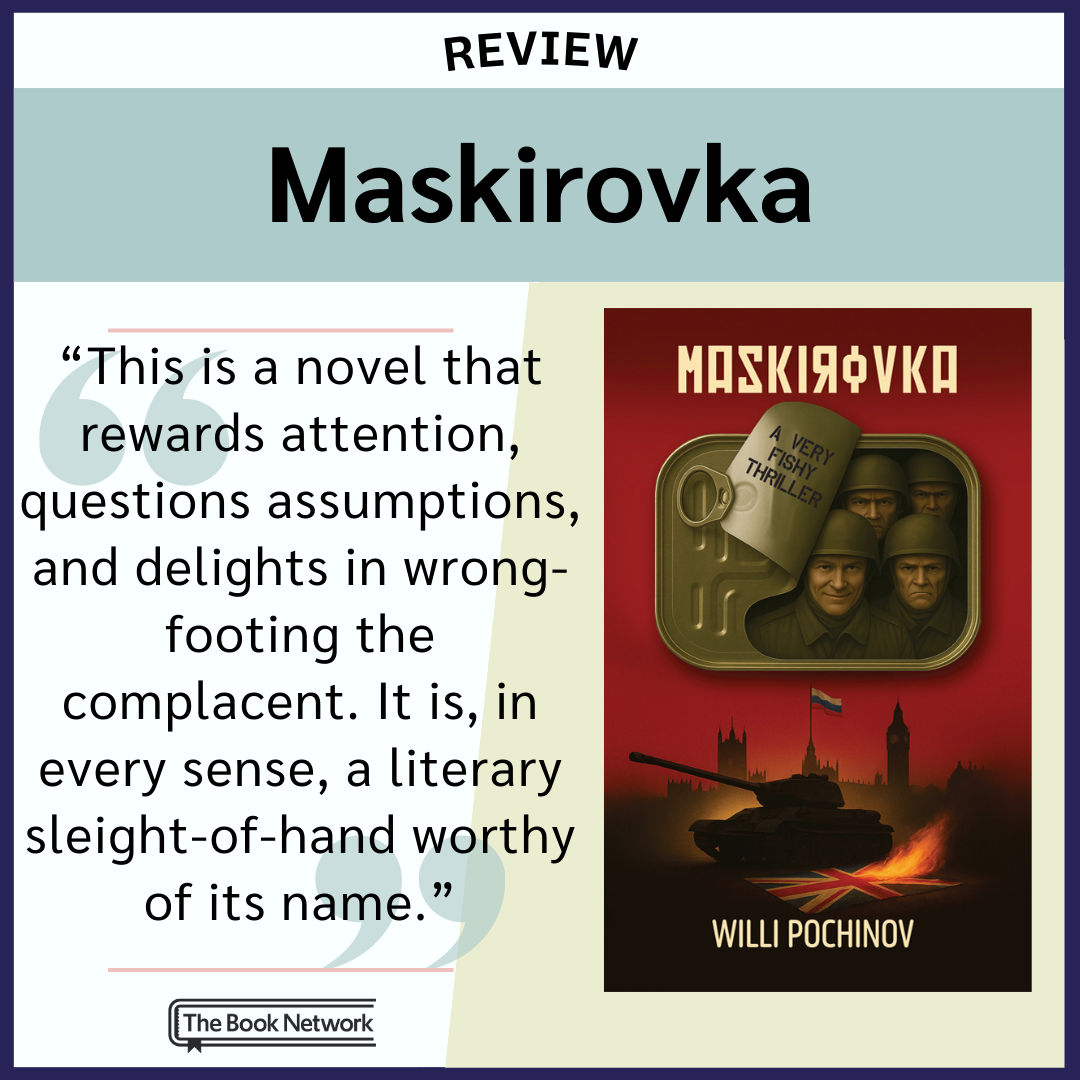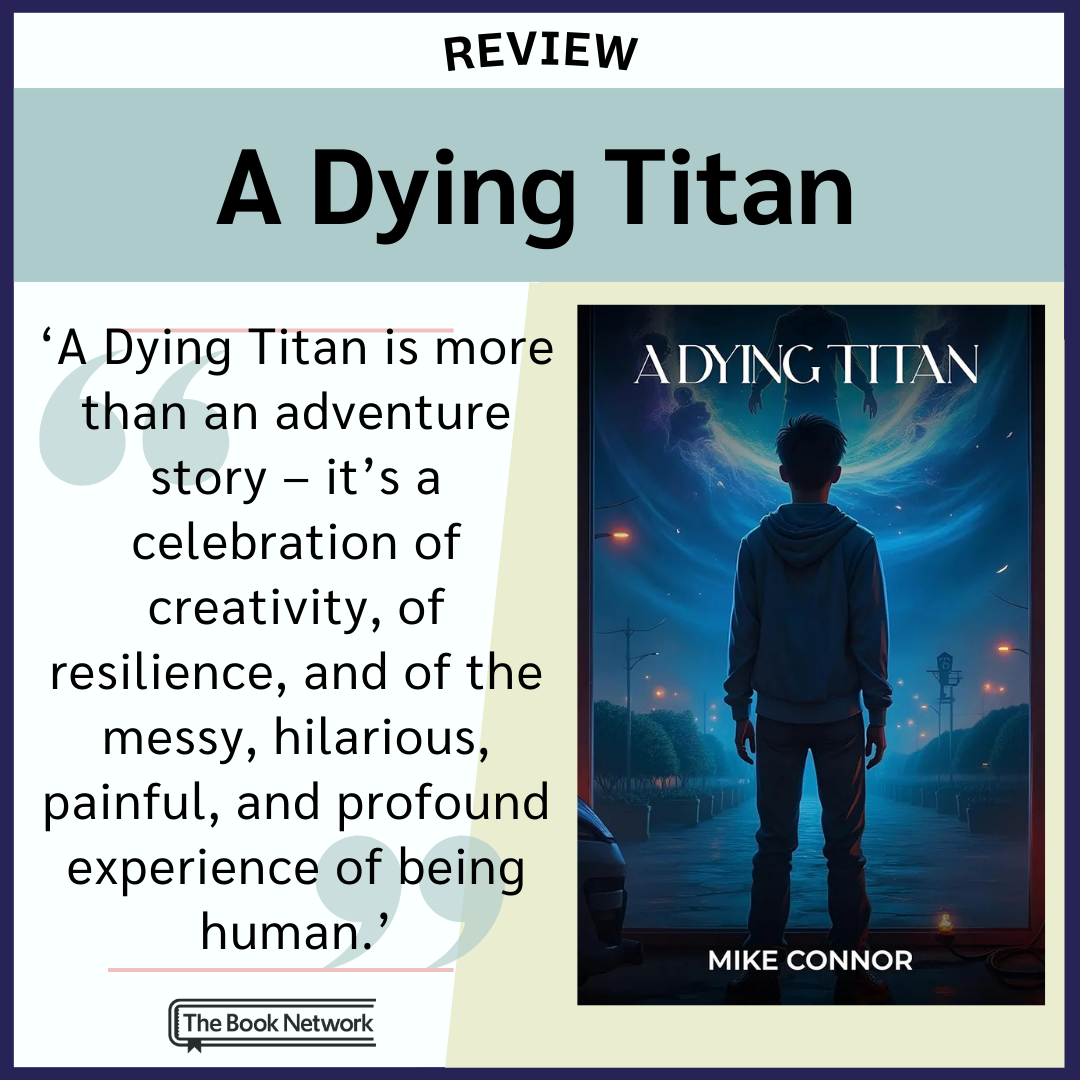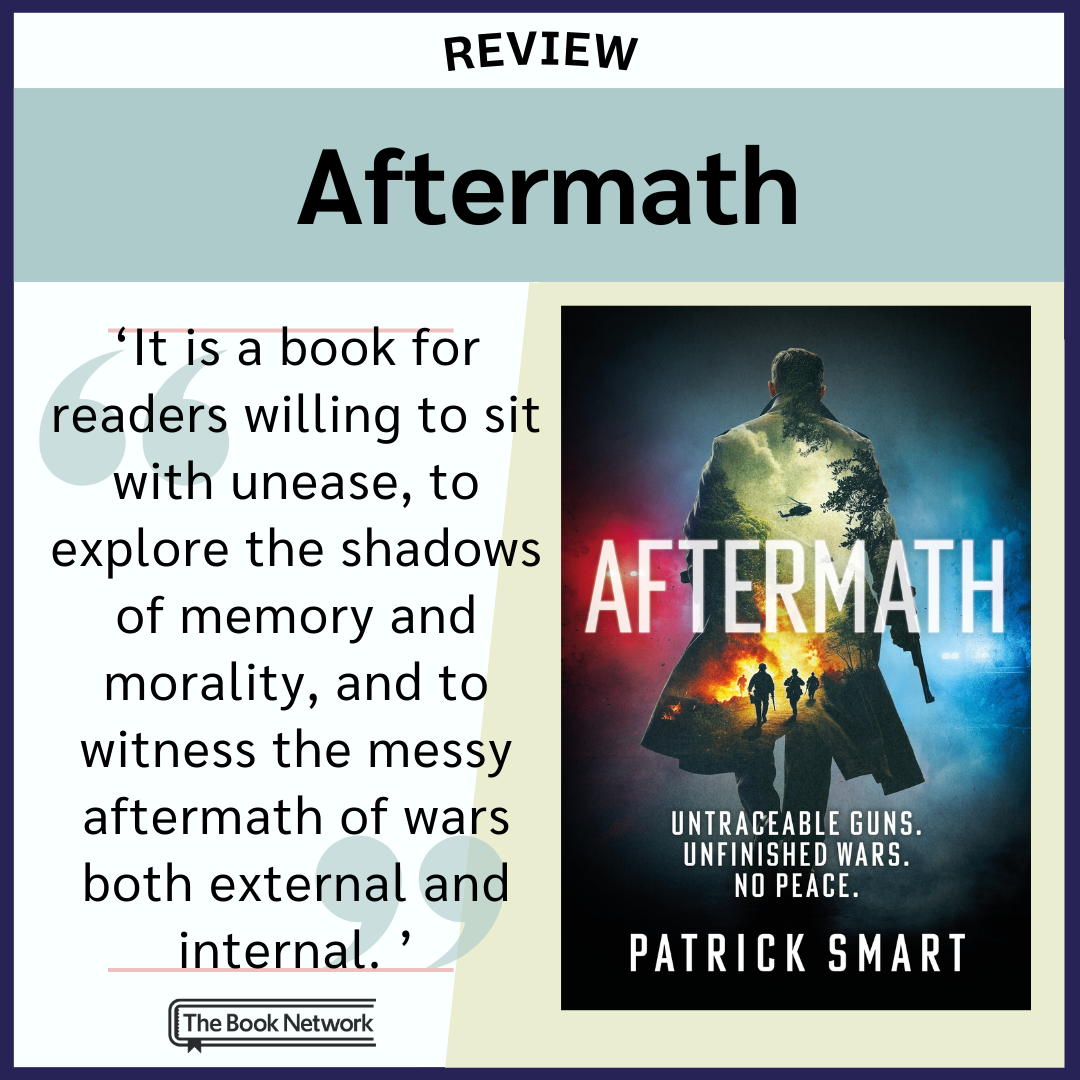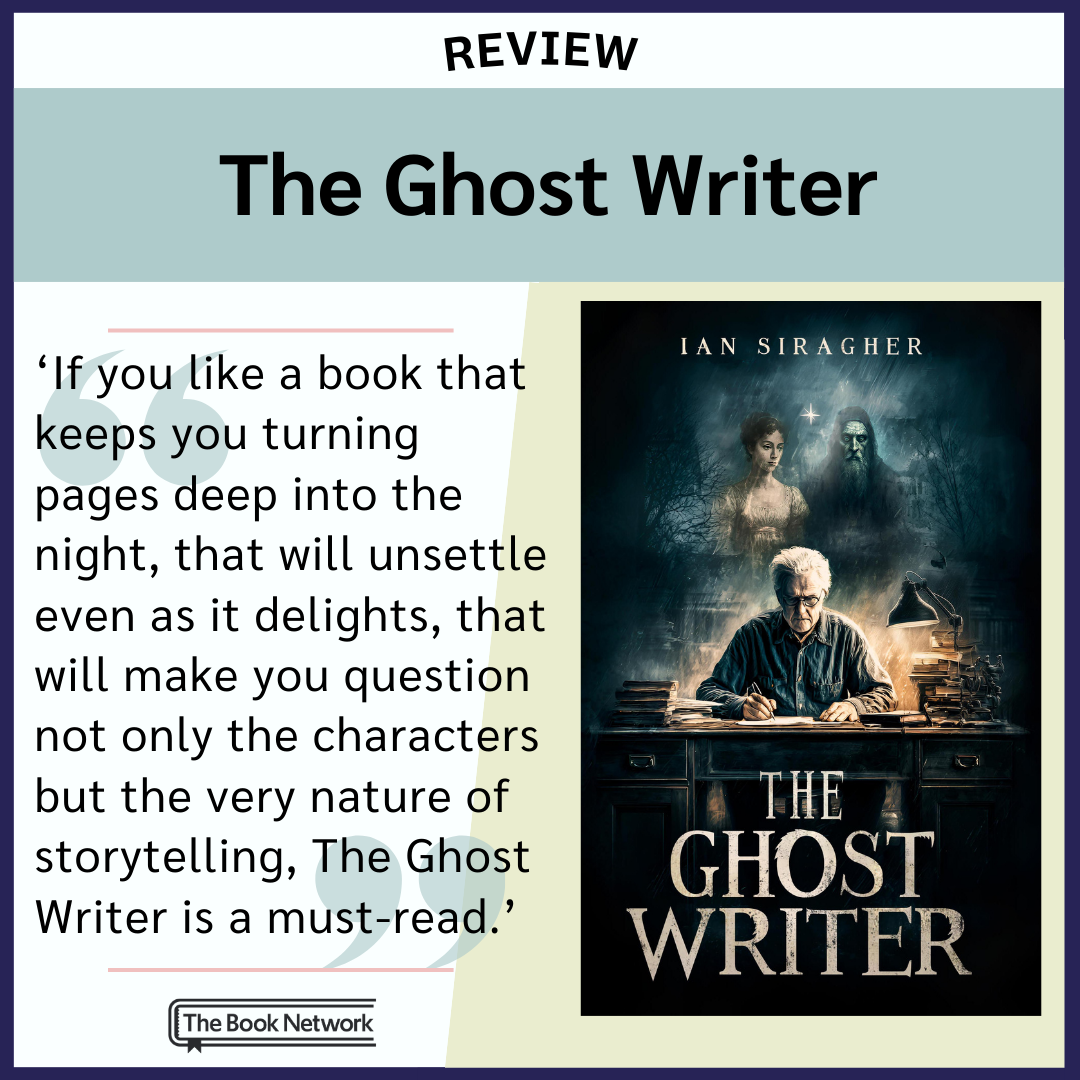
Maskirovka by Willi Pochinov - REVIEW
Some thrillers swagger in with noise and spectacle. Maskirovka does the opposite: it slips in quietly, smiling politely, and before you realise what’s happening, you’ve been pulled into a web of deceit, theatre, misdirection, and national-scale chaos. Willi Pochinov’s debut novel is an audacious, gleefully crafted labyrinth of trickery—fitting, given its title refers to the Russian doctrine of deception—and it is written with the confidence of an author who has lived long enough, and widely enough, to understand the strangeness of human behaviour on every rung of society.

The Turning by Ian Blaikie - REVIEW
Ian Blaikie’s The Turning is a suspenseful and quietly daring novel, the kind that first appears to be a time-slip mystery and then deepens into something far more resonant and rich. His version of time travel is deeply intimate rather than technical, rooted not in cosmic machinery but in human emotion. The result is a journey that feels simultaneously eerie, grounded, and unexpectedly personal.

Un*Fck Your Business Finances by Laura Linden - REVIEW
Some books make you feel as if someone has finally switched on the light in a room you’ve been stumbling through for years. I only wish I’d had a book like this when I first started my own business at twenty-seven. Un*Fck Your Business Finances sits in a category all of its own — part straight-talking guide, part reality check, part reassuring arm around the shoulder.
It’s written with the clarity of someone who has lived every mistake, every breakthrough, every quiet panic at 2 a.m. when the numbers don’t line up and the spreadsheet refuses to explain why.

The Magic Band of Five by Dougie Arnold - REVIEW
There are children’s adventure stories that entertain, those that educate, and those that quietly shift something inside you. The Magic Band of Five belongs firmly in the third category — a novel woven from decades of lived experience, sharpened by loss, and grounded in the kind of African knowledge you simply can’t fake. Dougie Arnold spent fifteen years in Kenya, helping to run a game reserve, flying planes and leading international schools, but it’s not the résumé that hooks you — it’s the sense that every scene, every creature, and every patch of sun-baked earth comes from a place he has truly walked.

Finding Ida by Marya Burgess - REVIEW
Finding Ida is a profoundly human novel. It is about sisterhood, survival, and the strange ways history decides who we become. It is about faith, forgiveness, and the instinct to search for those we love, even when hope has long since thinned. But above all, it is about identity — the kind we inherit, the kind we shape, and the kind we spend our entire lives trying to reclaim.

Darkness in Gibraltar by Paul S Bradley - REVIEW
Darkness in Gibraltar is a clever, tightly woven thriller that plunges straight into the shadows—both political and literal. It opens with an explosion on a quiet farm in Cádiz province, but the true detonation happens once DI Leon Prado and his unusual team of volunteer translators descend into Gibraltar’s wartime tunnels. For readers who enjoy thrillers with brains and atmosphere, this sixth instalment in Paul S Bradley’s Andalusian Mystery Series delivers exactly the kind of intrigue that keeps pages turning.

Carers Day Out Workshop by Jo Nicholls - REVIEW
From the very first page, Jo’s voice feels like a warm hand held out across the table. She welcomes readers into her “Carers’ Day Out” with exclamation marks of joy and sincerity — not the polished punctuation of publishing convention, but the spontaneous rhythm of someone who has lived what she writes. Her enthusiasm, sincerity, and gratitude radiate through every line: “All you need is the desire to feel closer to your loved ones…and the willingness to have a go!” It’s not the voice of a theorist; it’s the voice of a daughter who has learned, through heartbreak and hope, what care really means.

Where Are We Going and Are We Nearly There Yet? by Paul Hodson - REVIEW
A story could take you anywhere… and in Where Are We Going and Are We Nearly There Yet?, Paul Hodson invites us on a journey without a map — a wide-ranging, deeply humane reflection on what it means to be human in a world that feels simultaneously ancient and new. The title sounds almost whimsical, the question of an impatient child in the back seat, but it is also a cry from civilisation itself: have we made progress, and if so, towards what?

The Secret Adventure Machine (The Big Apple) by Sandra Jackson-Trench - REVIEW
A story could take you anywhere — and in Sandra Jackson-Trench’s The Secret Adventure Machine, “anywhere” means quite literally anywhere. One minute you’re an eight-year-old boy in suburban Birmingham, clutching your new MadTab 2.0 tablet; the next, you’re chasing villains through New York, dodging spies in Beijing, and discovering that imagination might be the most powerful technology of all.

The Allegations by Angela Lester - REVIEW
Some books whisper their secrets; others tighten the air around you until every breath feels complicit. Angela Lester’s The Allegations does both. It begins with the shock of a child’s discovery — a scene so intimate and quietly harrowing it imprints itself on the reader’s mind — and then unfolds into a psychological labyrinth of memory, guilt and the elusive nature of truth. By the time you realise where Lester has taken you, you’ve long surrendered to her spell.

Murder and Malice by Hugh Greene - REVIEW
In Murder and Malice, Hugh Greene invites readers into a world where intellect, power and morality intersect — and quietly implode. It’s a sophisticated psychological thriller that unravels in a world of universities, research funding, and the uneasy marriage between knowledge and corruption. The tone is deliberate and elegant; the violence is intellectual as much as physical. Greene writes as if he’s dissecting the soul of modern ambition with the precision of a pathologist.

Utopia? by R.A. Rowlingson - REVIEW
Dystopian fiction has long fascinated readers with its ability to reflect the cracks in our own societies through exaggerated, often terrifying, futures. In Utopia?, R.A. Rowlingson takes up this challenge with remarkable assurance, offering not merely another bleak vision of tomorrow but a layered narrative that combines political intrigue, social critique, and deeply human storytelling.

The Oak and the Eagles by Patrick Tooban - REVIEW
Patrick Tooban has achieved something rare: a historical novel that feels at once grand in scope and intimate in detail, scholarly in grounding yet poetic in telling. The Oak and the Eagles is not just a story about a forgotten figure of Celtic history — it is an invitation to step into a world where oak and eagle, prophecy and memory, flesh and spirit, are woven into the fabric of life. Readers who accept that invitation may well find themselves lingering by the fire, listening for the echoes of Calgach’s tale long after the book is closed.

To Keep Us All Safe by Stephen Ford - REVIEW
To Keep Us All Safe is much more than a dystopian narrative. It is a mirror held up to our fears, our sneakily extorted compromises, and our resilience. It asks us to look closely at the language of safety, to question who benefits from it, and to remember what is lost when freedoms are bartered away. It is a novel that lingers, whispering questions long after the final letter has been read.

No Free Speech for Hate by Stephen Ford - REVIEW
No Free Speech for Hate is a work of conviction, scholarship, and humanity. It is bold without being strident, rigorous without being dry, and urgent without being alarmist. In the current climate—where words have never carried more weight, and where democracies everywhere are being tested—it feels like essential reading.

A Dying Titan by Mike Connor - REVIEW
Jack Landon, a thirteen-year-old Goth with a knack for getting into trouble, is sarcastic, stubborn, vulnerable, and instantly sympathetic – the kind of protagonist you root for even when he makes questionable decisions. His life is turned upside down when he finds himself pursued by a mysterious man, stunned by a robot, and whisked into a completely unfamiliar reality. Here he meets Dorothy, a so-called Guardian Angel who is equal parts wise, chaotic, and hilarious. She offers Jack biscuits, sweets, and tambourines as if these are the essentials for surviving both adolescence and interdimensional crises.

Aftermath by Patrick Smart - REVIEW
At first glance, Aftermath might appear to be a straightforward war story — paratroopers dropping into enemy fire, crackling radios, the weight of a revolver in a soldier’s hand. But Patrick Smart isn’t writing a soldier’s adventure yarn. He is writing about what happens after. The title itself is the clue. This is less about glory on the battlefield and more about the scar tissue left behind: the fractured psyches, the attempts to find routine after chaos, the sense that violence has bled into everyday life in ways that no discharge papers can erase.

Traitors, Cannibals, Highlanders & Vikings by Carolyn J. Nicholson - REVIEW
Nicholson has a gift for taking meticulously researched history and turning it into something vivid, immediate, and unexpectedly moving. This isn’t a dry recitation of dates and facts — it’s an immersive journey, in every sense of the word. Our guide is Caroline Morton, a young widow living in Halifax, Nova Scotia, who sets out to write a novel about her family history. One year later, she hasn’t managed the first chapter. Then, in a wonderfully mischievous twist, her ancestors decide to intervene.

The Ghost Writer by Ian Siragher - REVIEW
Some book titles whisper; others announce themselves with a kind of eerie authority. The Ghost Writer sits somewhere in between: quiet, unsettling, and suggestive of hidden hands shaping both the page and the lives upon it. From the outset, I knew this was not going to be an ordinary read.
Having already devoured The Three Wives of Charlie Mellon, this is the second novel I’ve read from Ian Siragher, and I was curious to see where his imagination would lead this time. This novel is sharper, more enigmatic, and comparatively a deeper shade of grey — a story that lingers like a shadow you can’t quite shake.

The Last Witch on Skye by Carolyn J. Nicholson - REVIEW
Carolyn J. Nicholson’s The Last Witch on Skye is a radiant tribute to oral tradition, Celtic folklore, and the quiet resilience of those who live between worlds—be they witches, fairies, or misunderstood humans. With her debut into middle-grade fantasy, Nicholson gifts readers a story rich with mischief, wit, cultural texture, and emotional depth, all wrapped in a narrative voice that is both timeless and tender.
